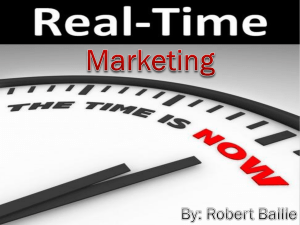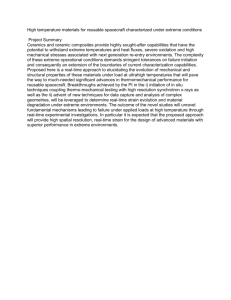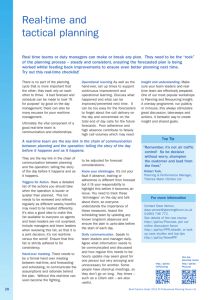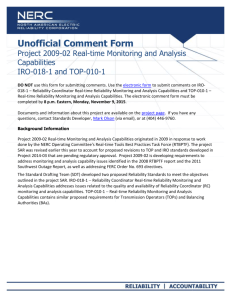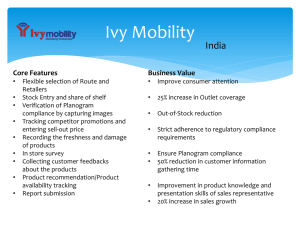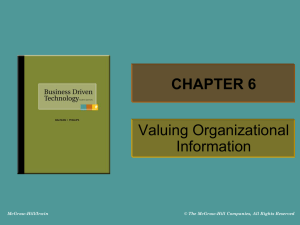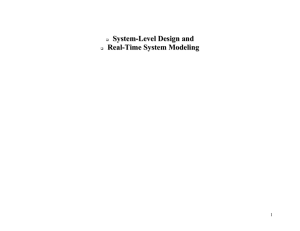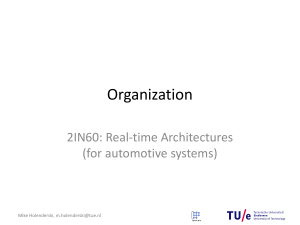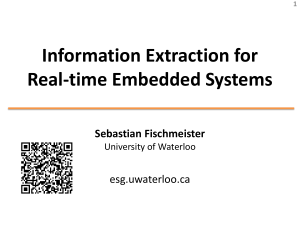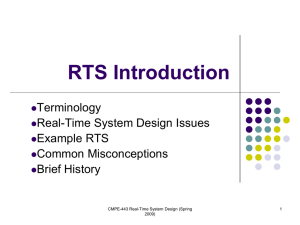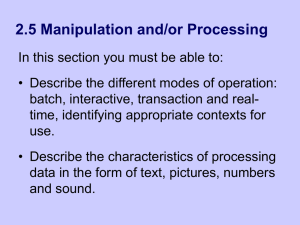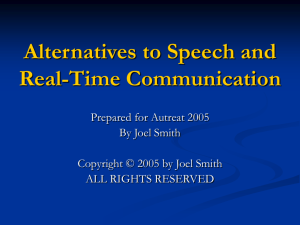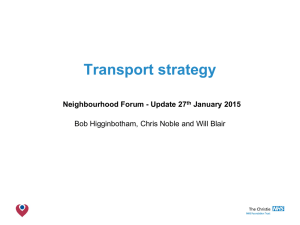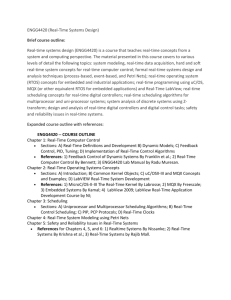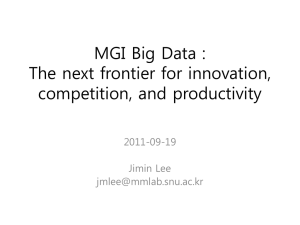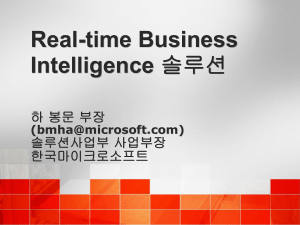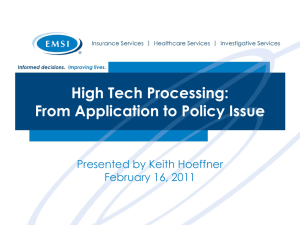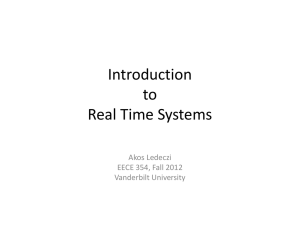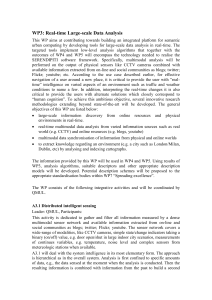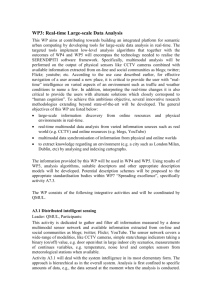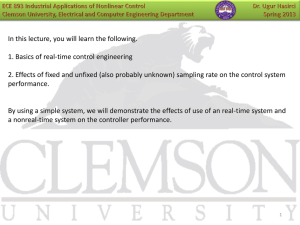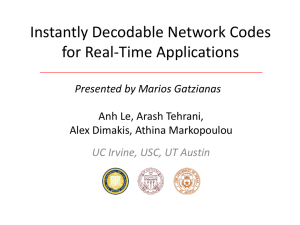Demolishing Information Silos for the Benefit of Customers
advertisement
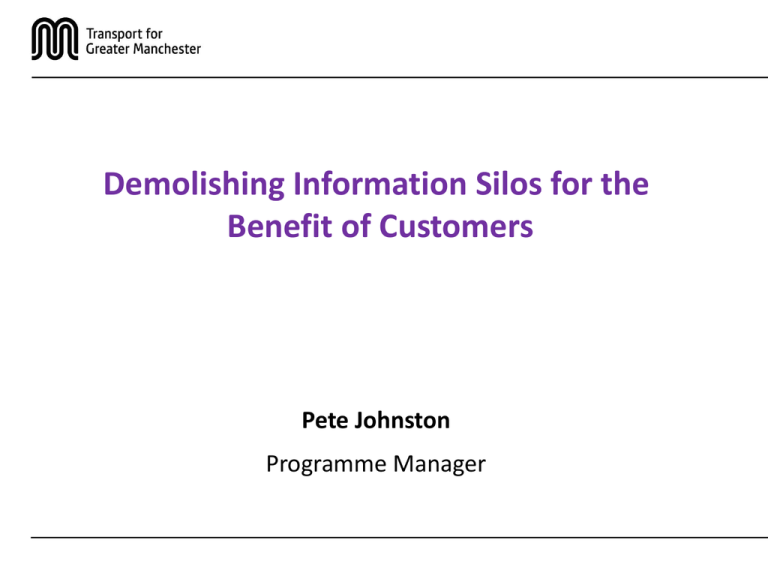
Demolishing Information Silos for the Benefit of Customers Pete Johnston Programme Manager Smarter Travel Programme • Distinct, technology led initiatives that will embed longer-term sustainable travel patterns through: o real time and dynamic travel information o predictive and dynamic and network interventions to support overall efficiency of the highways o deliver priority to late running buses at traffic signals • Getting more customers to work, education etc in a more sustainable and efficient manner Smarter Travel Vision “To allow our customers to make informed travel choices in Greater Manchester, supported by multimodal, real-time travel information and through improved efficiency of the highway and public transport network.” Smarter Travel Objectives Get more customers using sustainable travel options to access employment, education and leisure by providing: • Multi modal, multi operator, multi channel passenger information • Improved selection of travel • Systems that are easy to use • Passenger centricity • Comprehensive data and information with integrity • Predictive traffic management • Improved bus journey time reliability • Best in class implementation and operation Current Issues • Data on highways and PT not currently integrated • Limited visibility of info across modes to manage network when things don’t run to plan • Lack of access to high quality, real-time information across all modes • Inconsistent approaches to data management Key Challenges • Large number of complex data sets to provide multi-modal, multi-operator solution • Deliver integrated architecture that is flexible enough to manage data across the whole transport network in the available timescales • Obtaining appropriate real-time data feeds from large number of sources within and outside TfGM Data Availability Opportunities • Mobile communications, computing, pervasive sensors built-into infrastructure and vehicles • Intelligent use of this information will significantly improve public transport attractiveness and efficiency, and enable wider mix of modes Challenge • Collecting, managing and releasing data in a timely manner and useable format • Cannot be done by just pressing a switch Internet of Transport Things Transport as a Service • Real-time vs. Predictive • Floating passenger data • Intersection intelligence • Adaptive signals • Area optimisation Conceptual View of System Design (Draft) Simplified View of System Design (Draft) Application 1 Application 3 Application 2 Application 4 Central Data Store Data Source 1 Data source 2 Data source 3 Data Source 4 Shared Data for Travel Information • Consistent base data e.g. GIS, road network, TfGM assets • Used by all modes • Coordinated management of data • Clear process for publication • Transparent information • Consistent data for Open Data community Shared Data for Operations • Consistent set of data being available to all modes • Access to TfGM data for transport operators e.g. highway performance information • Ability to see the impacts of incidents across the whole network in real-time • Use of prediction to see the impacts in the near future • Ability to plan accordingly and be more proactive in our response to incidents and congestion • Virtual or physical operations management capability Open Data Platform • Real-time Open Data platform launched in March 2013 – including new realtime feeds which will continue to be built upon through rest of the Smarter Travel programme: • Real-time API for Metroshuttle City Centre buses • Real-time API for car journey times on GM key routes • Real-time API for car park availability • Weekly data feed of PT timetable data in open format (GTFS) Innovation Challenge • Routes to the Future - Innovation Challenge for developers using open data feeds • Over 100 attendees who split in to 20 teams and each developed prototype apps • A number of winners were awarded funding to further develop the prototypes Things to Address • People and skills – what do we need to be effective in the future? • Big Data – more unstructured data from wider sources • Data access and governance in a future world • Smart Cities – Relationship between health, energy, transport etc Thank You Pete Johnston Programme Manager pete.johnston@tfgm.com 0161 244 1222
